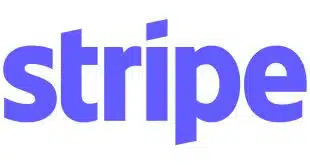In the hotly contested market for person-to-person transactions, PayPal Holdings Inc.’s Venmo unit has rarely made a misstep. But over the weekend the popular service said it will raise its fee from 25 cents to 1% for so-called instant transfers users make to move money from their Venmo account to a bank account, with a 25-cent minimum. The move, which takes effect Nov. 6, startled at least some users and could prove a competitive advantage for Zelle, a fast-growing bank-owned service, observers say.
The Venmo instant-transfer service allows users who want to move cash fast into a bank account to have the funds in their bank within 30 minutes or less using a Visa or Mastercard debit card. Venmo introduced the service in January with the 25-cent fee. Standard transfers, which may take a couple of days, are not affected by the change, nor are P2P transfers to other users.
But Venmo’s decision has set off a firestorm of comment on social media, where users have denounced Venmo while others indicate a misunderstanding about what the fee to applies to. “Hot take: This may just be the worst idea they’ve ever had,” reads an Oct. 12 post on Twitter. “The Venmo rate increase is a massive communications fail. So many users confused about what is going on and which transactions will and will not be impacted,” reads another post on Saturday. Not all reactions are negative: “Seems like a reasonable thing to charge for at first glance?” says a post from late Sunday.
A PayPal spokesperson did not immediately respond to a request for comment. But for some time the company has sought ways to make money on Venmo, where growth has been gratifying but expensive, since free P2P movements have cut into PayPal’s overall take rate, or the money it keeps on each transaction.
Venmo notched $14.2 billion in volume in the second quarter, up 78% year-over-year, but PayPal’s take rate for all products slipped 14 basis points to 2.77%.
Some observers now see an opening for Zelle, the 16-month-old P2P service owned and operated by Early Warning Services LLC, a Scottsdale, Ariz.-based software firm that itself is owned by many of the nation’s largest banks. Zelle’s big advantage, they say, is that transfers take place directly between bank accounts, and at no charge. Instead, the service has looked to make money on disbursements from companies to consumers.
“I would anticipate Zelle and the Zelle financial institutions will emphasize that they’re fee,” says Sarah Grotta, director of the debit advisory service at Mercator Advisory Group, Maynard, Mass.
At the same time, however, Venmo’s decision could encourage users to keep their funds “within the Venmo world,” she says, making more money available for merchant transactions, where PayPal earns merchant fees. PayPal has introduced Pay With Venmo to allow users to make online transactions and the Venmo Card, cobranded with Mastercard, for in-store purchases.
Meanwhile, Bank of America Corp. reported Monday that its customers made 42.5 million Zelle person-to-person payments in the third quarter, up 139% from 17.8 million transactions a year earlier. The value of the payments doubled to $12 billion.
Charlotte, N.C.-based BofA said 4.3 million of its customers have used Zelle since the bank launched the service in 2017’s second quarter. BofA is one of the co-owners of Early Warning Services. The bank likley accounts for one-third of all Zelle transactions, estimates Thomas McCrohan, a payments analyst with Mizuho.
In related payment metrics released with its third-quarter earnings report, BofA said its debit card holders made $79.9 billion in purchases, a 7% increase from $74.8 billion in 2017’s third quarter. BofA’s U.S. credit card holders tallied $66.5 billion in purchase volume, up 7% from $62.2 billion a year earlier.
—With additional reporting by Jim Daly




